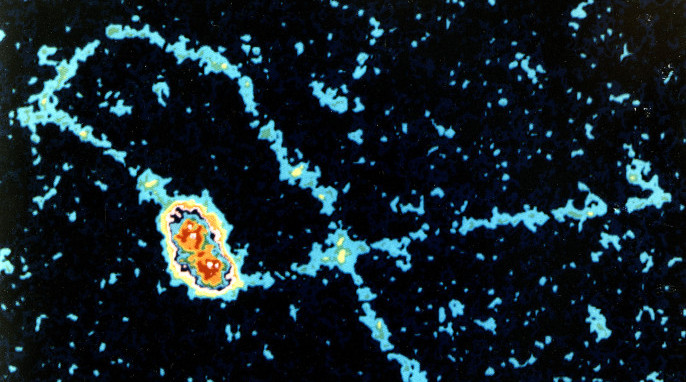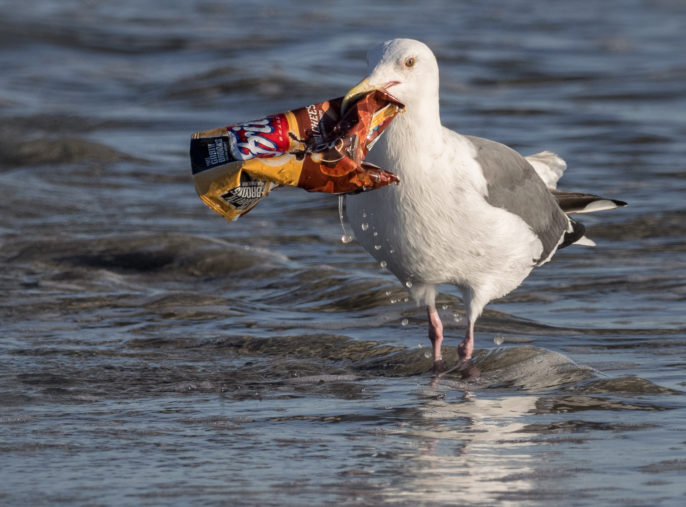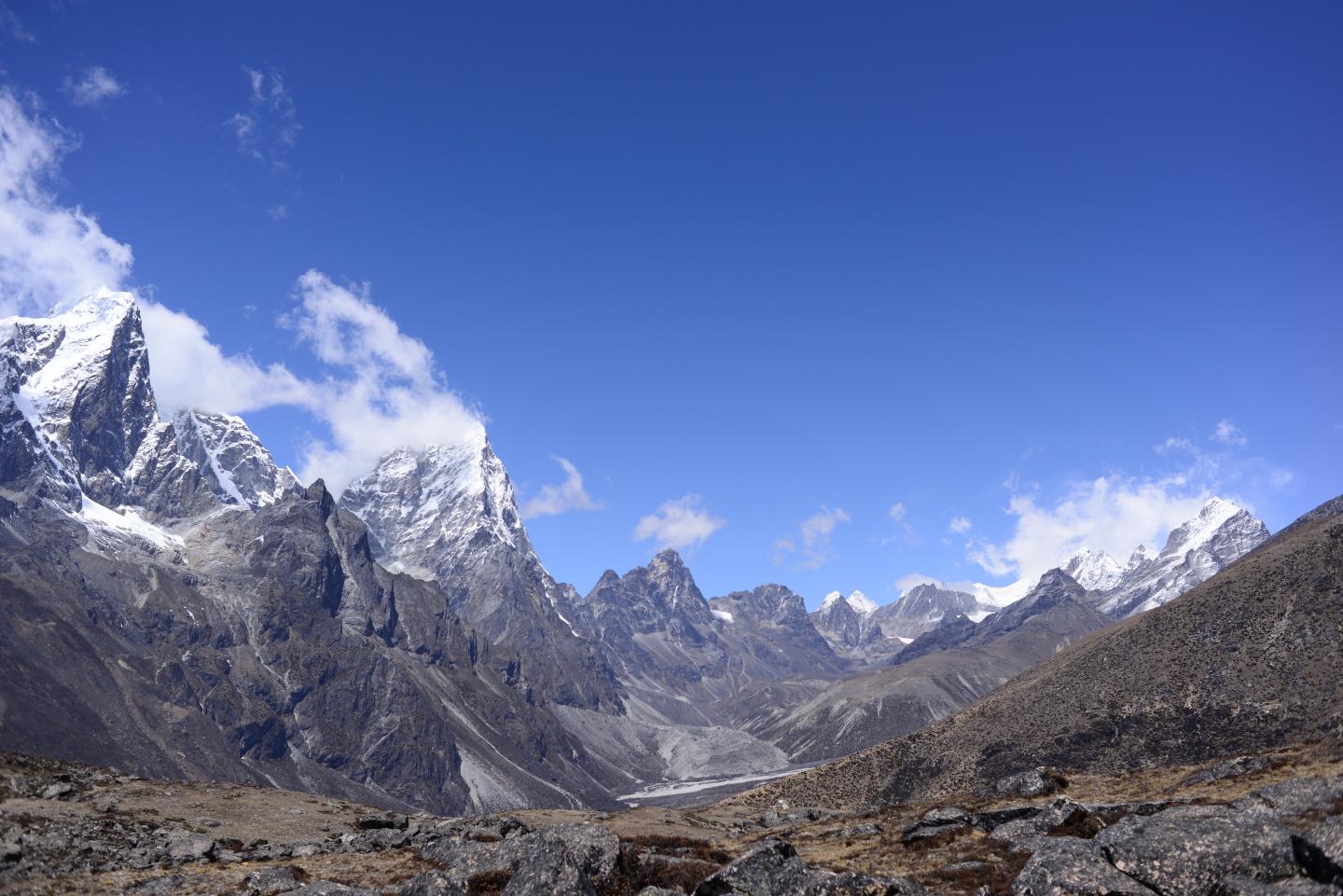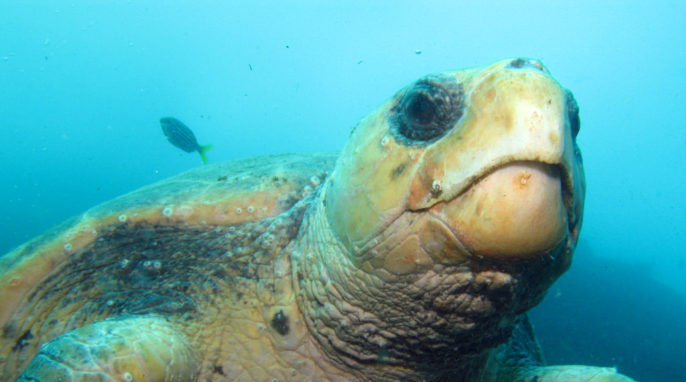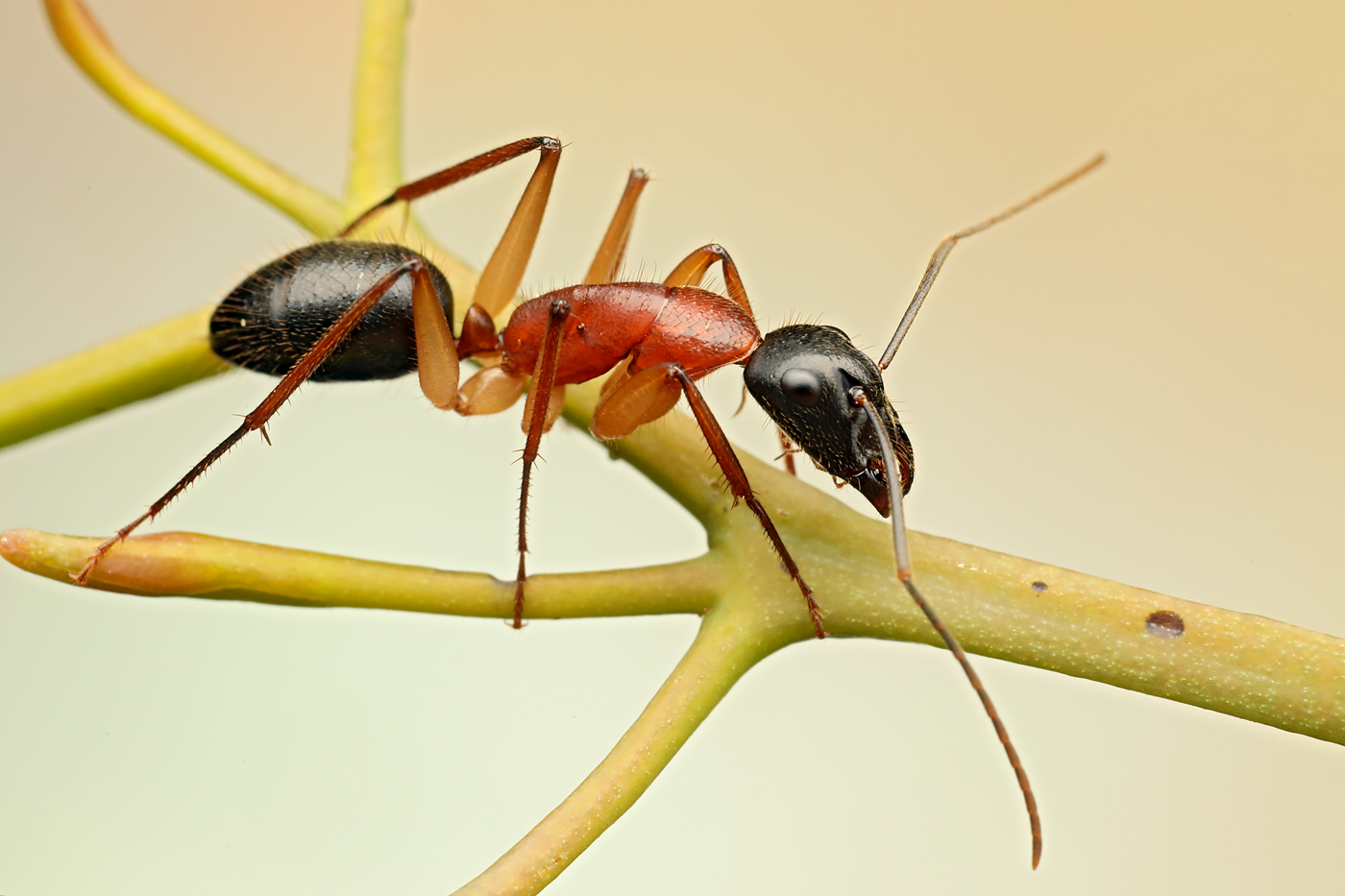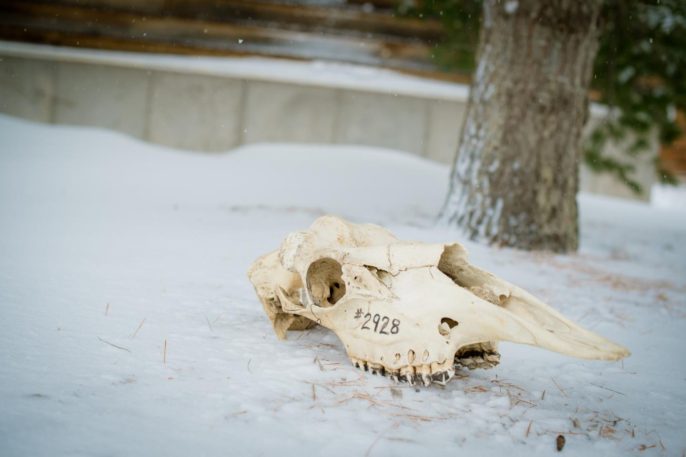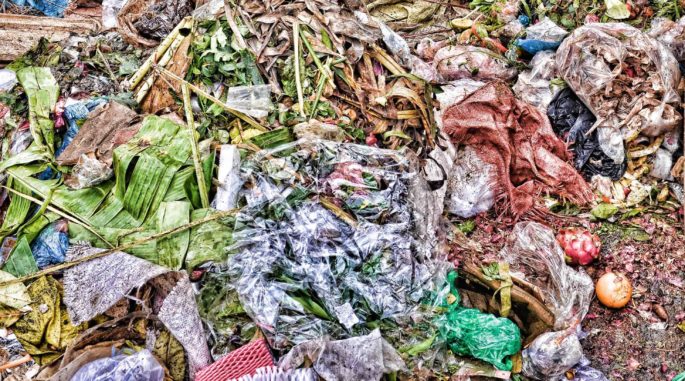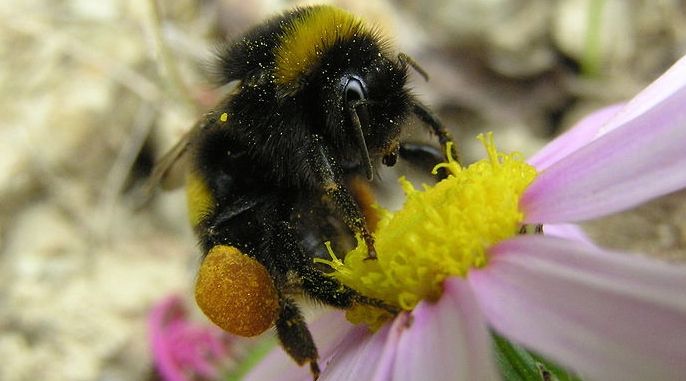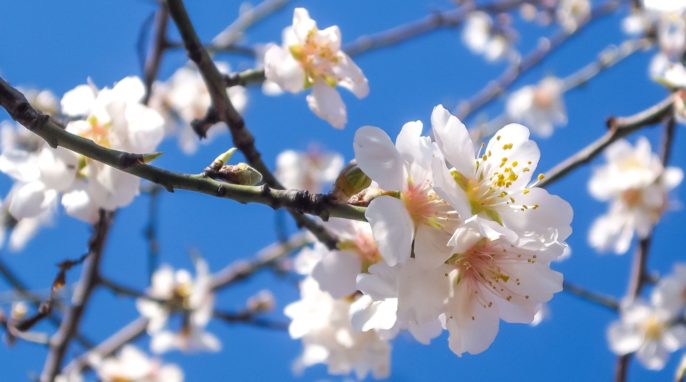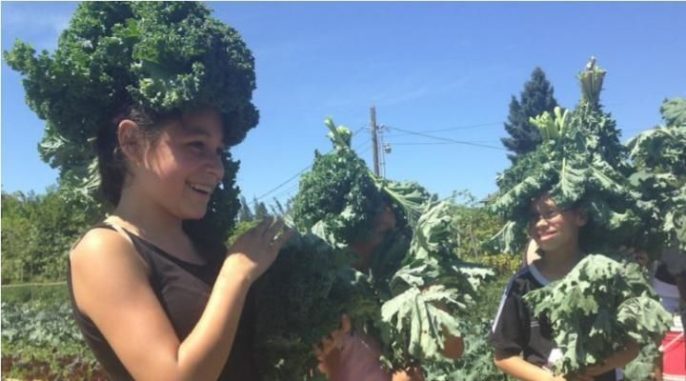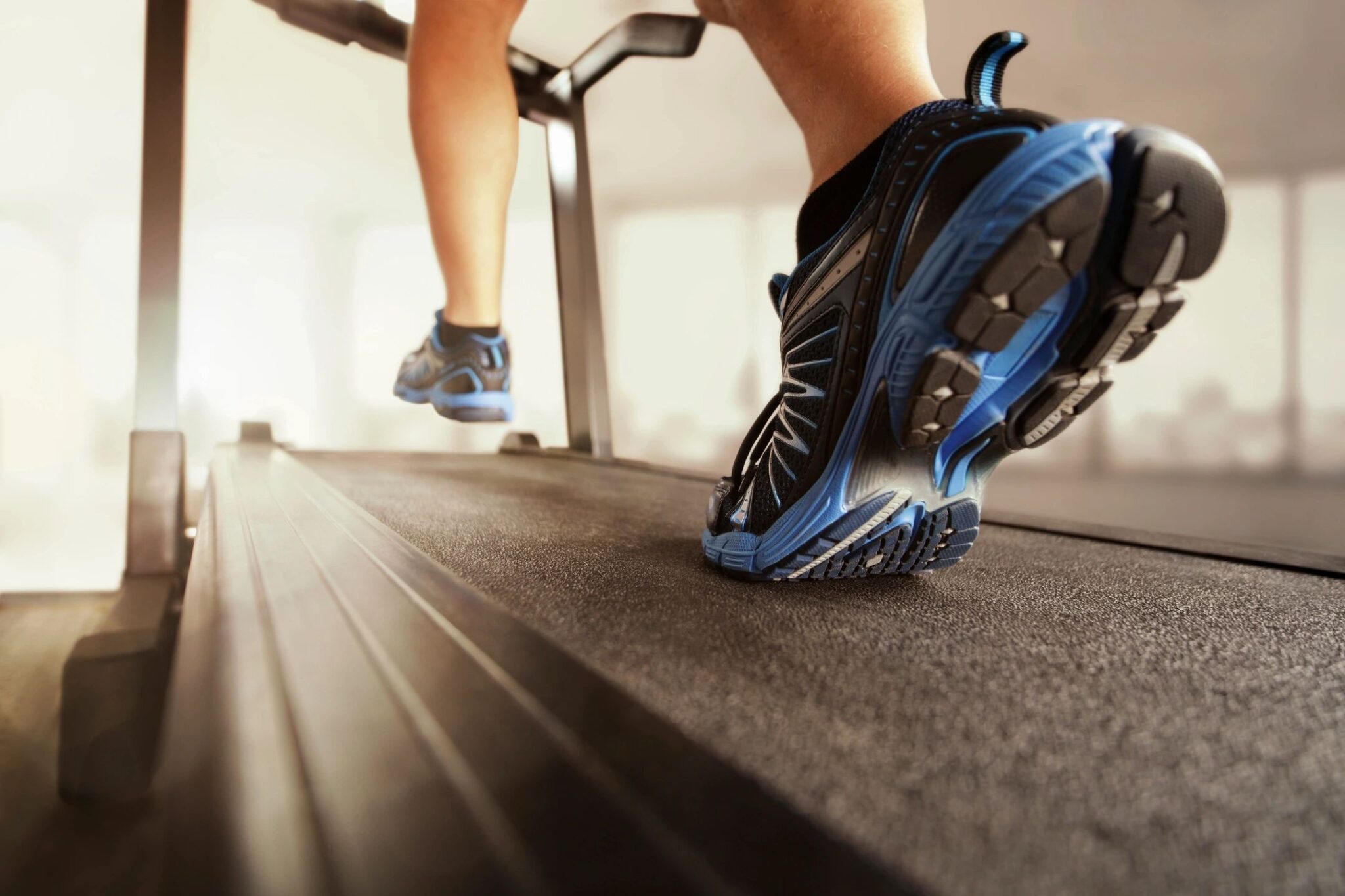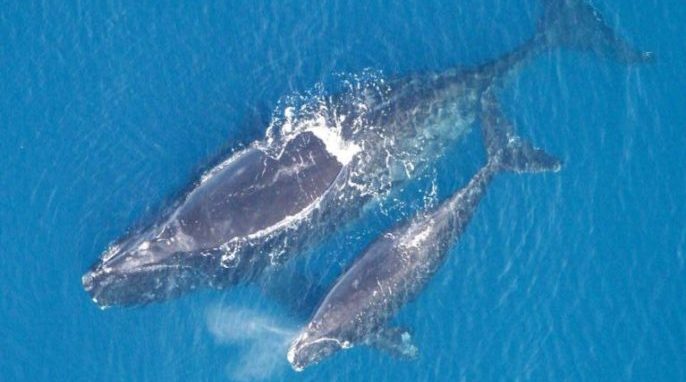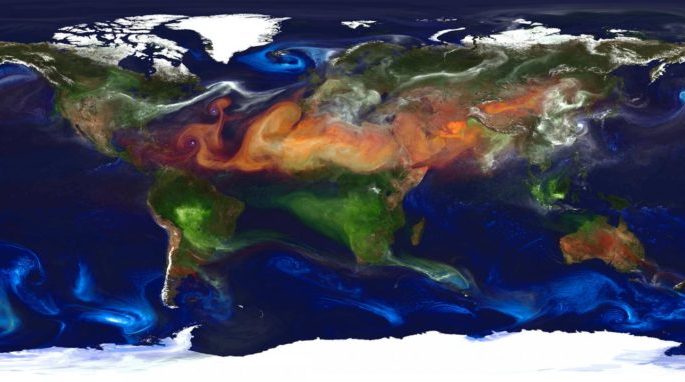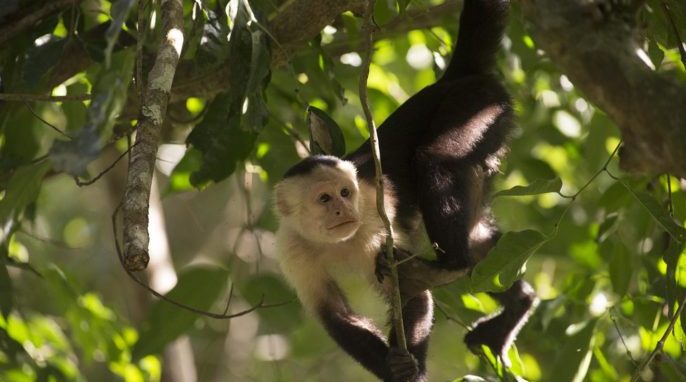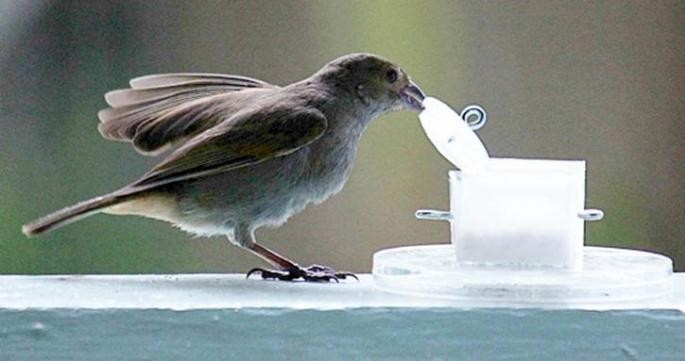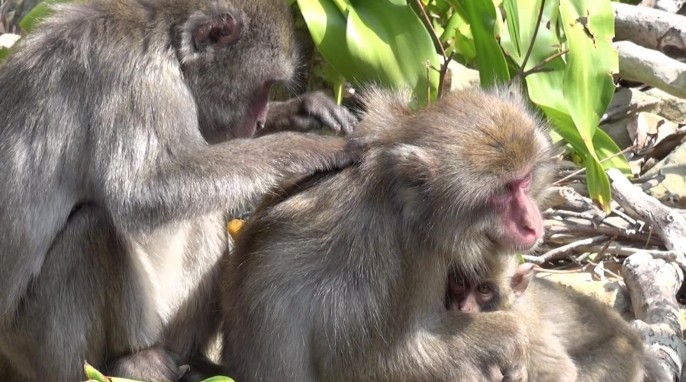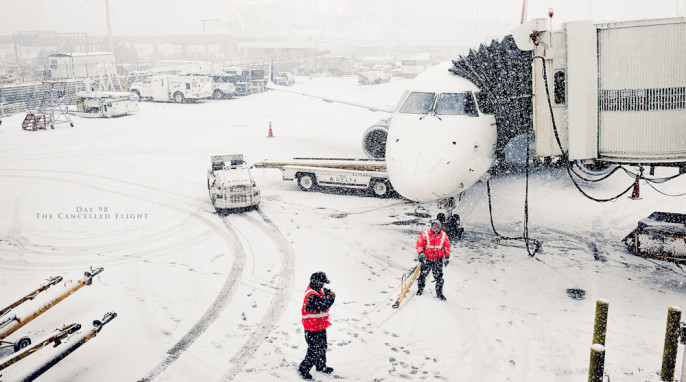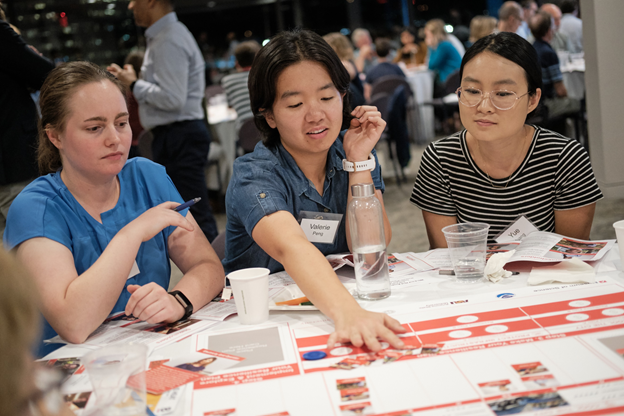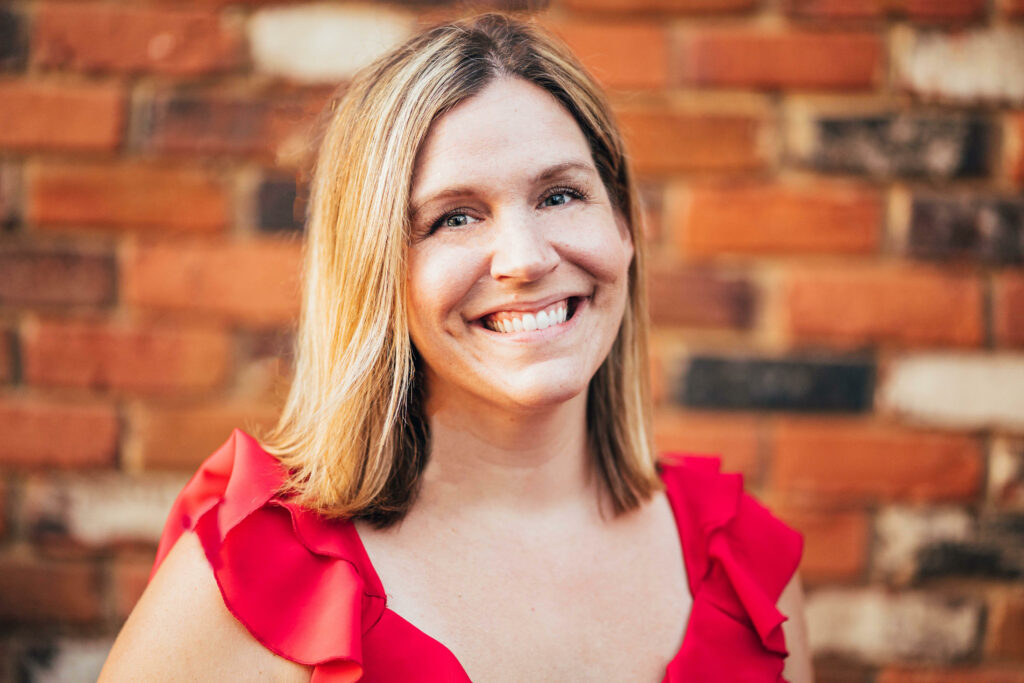
Emily is a professional science journalist and municipal water resources educator. Her goal is to make science accessible and interesting for everyone. She has worked as an outdoor environmental educator, science teacher, and professional communicator and trainer. You can follow her on Twitter @riseandsci.
Cancer Treatment from a DNA “Trojan Horse”
Scientists have developed a new kind of cancer treatment. It's a cancer-fighting Trojan horse made from folded DNA and tiny pockets filled with anti-cancer drugs. By Emily Rhode In ancient Greece, a clever disguise and a bit of greed was all it took to defeat the city of Troy. Now, ...
Plastic Pollution: Microplastics in the Environment
Tiny plastic particles, or microplastics, have made their way from our soil, oceans, and bodies. Plastic pollution on the nanoscale can have dangerous new properties. By Emily Rhode Tiny plastic particles that can barely be seen by the human eye have made their way from our soil into everyday items ...
Plants Climb Himalayas as Snow Line Recedes
It's hot outside! Climate change is heating up the planet, including the Himalayas, changing vegetation patterns and affecting the flow of water to people living at the base. By Emily Rhode Humans aren’t the only ones climbing the highest peaks in the world these days. Thanks to warming temperatures, some ...
Sea Turtles Fooled by Trash Resembling Their Food
Sea turtles that mistake trash for food are in for a world of hurt. Green sea turtles and loggerhead turtles often mistake plastic bags for jellies. By Emily Rhode With an estimated 5 trillion pieces of plastic debris floating in the world’s oceans, marine animals are increasingly suffering from the ...
Ants’ Love of Pee May Reduce Greenhouse Gas
Ants consume urine for its nitrogen content, and a new study shows that this helps ants thrive in sandy habitats and may even reduce greenhouse gases. By Emily Rhode Their beachfront homes came with a view. But they also came with a condition. In order to survive, these residents of ...
C-Sections Not to Blame for Obesity Epidemic
Rates of C-sections have risen along with obesity rates, but a new study finds that birthing method is not the cause of childhood obesity. By Emily Rhode A new study out of Sweden appears to put to rest the idea that babies born by cesarean section will grow up to ...
Is Climate Change Causing These Moose to Shrink?
A 60-year-long study reveals that climate change is causing moose to shrink and changing the dynamics between the moose and wolf population of Isle Royale, Michigan. By Emily Rhode The effects of climate change are starting to show themselves in strange and unexpected ways. For the cold-adapted moose of Isle ...
Bioelectronic “Nose” Sniffs Out Rotten Food
Does that food smell rotten? Researchers have developed a way to detect rotten food odors that are too faint for the human nose. By Emily Rhode One whiff of spoiled meat is usually enough to let us know that we should definitely not eat it. But what about those leftovers ...
Do Wandering Bees Help Spread Disease?
Researchers have found a new and unexpected way that humans are killing off bumblebees. By Emily Rhode Given the continued growth of the human population, it’s no surprise that our behaviors impact plants and animals. But what might be alarming are the ways we harm these species. Habitat loss and ...
Chemicals Used on Almond Trees Linked to Bee Deaths
While the demand for almonds is growing worldwide, honeybee populations have been steadily declining. Are almond-growing fungicides causing bee deaths? By Emily Rhode Americans have a serious obsession with almonds. In 2016, 1.2 million metric tons were grown worldwide, and 80% of that was grown in California alone. As our ...
Urban Gardening’s Benefits Outweigh Lead Exposure Risk
By Emily Rhode @riseandsci Three years after the Flint water crisis began, lead in drinking water continues to make headlines across the United States. But should city dwellers also be worried about lead exposure from something as innocent as their neighborhood garden? New research suggests that unless you are eating ...
Improve Your Running with Physics
Are you a runner? You can use some basic laws of physics to improve your running. New research shows how to predict the forces between the ground and your feet. By Emily Rhode Running is one of the simplest forms of exercise we can do. It requires no protective gear ...
Old Threats Still Endangering Right Whales
By Emily Rhode @riseandsci After decades of recovery from the brink of extinction, the North Atlantic right whale is once again under serious threat from human activity. But this time the decline is not due to overhunting the animals (once prized for being the “right” whales because of their slow ...
Marshall Islands Radiation Still Too High Decades Later
By Emily Rhode @riseandsci In the years immediately following the end of World War II, the United States government conducted large-scale testing of nuclear weapons on a small group of islands in the remote Pacific Ocean. On March 1, 1954, the largest nuclear device ever tested by the United States was ...
Desert Dust Increases Harmful Marine Bacteria
By Emily Rhode, @riseandsci A new study out of the University of Georgia could help predict blooms of a common but deadly type of marine bacteria and change the way we view some the planet’s most important environmental processes. The genus Vibrio includes the bacteria that cause cholera. It can also ...
North American Monkeys Older Than Previously Thought
By Emily Rhode @riseandsci With the formation of the Isthmus of Panama, North and South America became connected by a thin but important strip of land that was at one time the location of a narrow seaway. As engineers recently worked to widen the Panama Canal that once again divides ...
Urban Birds Smarter, Healthier than Country Cousins
As more of the world’s rural areas become urbanized, habitat loss threatens biodiversity. Researchers hoped to understand how urban birds survive. By Emily Rhode Aesop’s fable of the country mouse and the city mouse cautions that city life, while certainly more exciting than the “modest life with peace and quiet” ...
For Macaques, More Friends Means Fewer Parasites
By Emily Rhode @riseandsci What if instead of just hanging out on lunch dates or at happy hour, people sat around and picked parasites from their friends’ bodies? That probably wouldn’t go over too well with humans, but primate researchers from Kyoto University have found that for Japanese macaques, popularity ...
Conductive Concrete May End Flight Delays
By Emily Rhode Every year, thousands of flights are delayed and thousands of car accidents happen due to snowstorms and icy road conditions. Millions of dollars are spent each year plowing and de-icing runways, tarmacs, roadways, and bridges. Salt and plowing cause damage to roadways and waterways, and shoveling heavy ...
Boston is Wicked Hot: Here’s What They’re Doing About It
Want to learn more about this initiative? Check out the Wicked Hot Boston series, Parts One and Two. Want to address climate hazards in your community? Head over to SciStarter.org/NOAA to find a citizen science project. Wicked Hot Boston It’s true: the world is getting hotter, and Boston is becoming ...
Mapping the Urban Heat Island Effect with Wicked Hot Boston
by Emily Hostetler, Sara Benson, and Roxanne Lee It’s not just in your head; Boston really is hotter in the summer. When urban areas are warmer than surrounding non-urban environments, we experience a phenomenon called the urban heat island (UHI) effect. Cities are filled with large amounts of artificial materials, ...
You Can Help Beat Extreme Heat in Cities
Imagine a smoldering hot day in downtown Boston: temperatures have reached over 90 degrees Fahrenheit, and the sidewalks and streets are absorbing the strong heat from the sun and radiating it back into the air. Days like this are becoming hotter and more frequent. This “silent storm” causes more deaths ...

